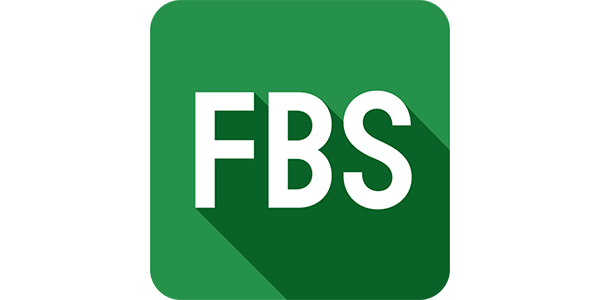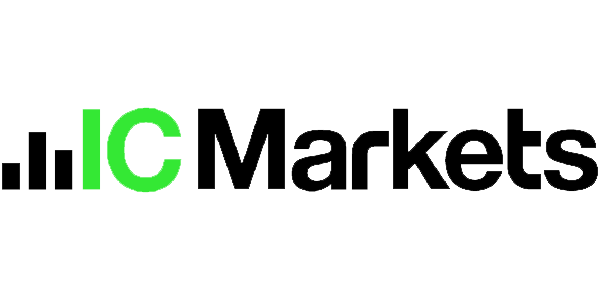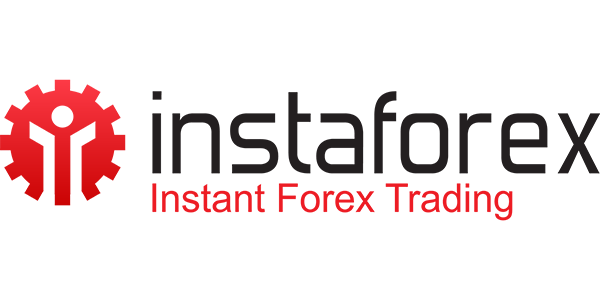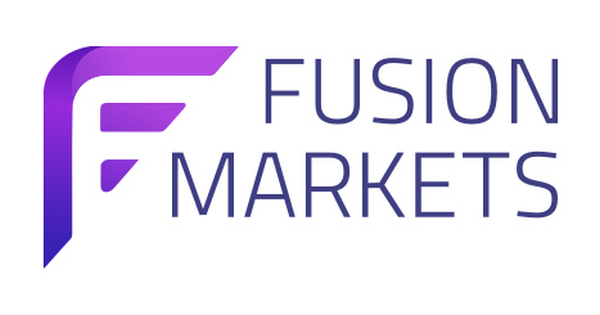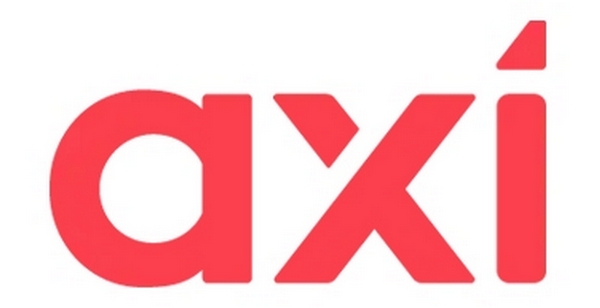In this setting, choosing a reliable, well-regulated forex broker is essential. A good broker gives Cambodian traders access to competitive spreads, swift execution, secure fund handling, and convenient funding/withdrawal channels. In the sections ahead, we’ll walk through how to evaluate brokers, highlight top international brokers available to Cambodian clients, and explain features and advantages tailored for local traders.
List of The Best Broker for Trading
Here’s a quick comparison of the best trading platforms based on their compatibility and market access.
| Best For | Commision | Min Dep | Leverage | Platforms | ||
|---|---|---|---|---|---|---|
| Beginners, Professionals, Active Traders | From $6 per lot | $100 | Up to 1:500 | MetaTrader 4 MetaTrader 5 Ctrader | ||
| Beginners, Active Traders | No commission (for Standard accounts) | $5 | Up to 1:1000 | MetaTrader 4 MetaTrader 5 | ||
| Beginners, Professionals, Active Traders | From $5 per lot | $100 | Up to 1:400 | AvaTradeGo MetaTrader 4 MetaTrader 5 | ||
| Beginners, Copy Traders | No commission | $200 | Up to 1:30 (1:5 for crypto) | eToro Platform MT4 MT5 | ||
| Beginners, Active Traders, Scalpers | No commission | $1 | Up to 1:2000 | MT4 MT5 WebTrader Exness Trade App | ||
| Beginners, Professionals, Active Traders | No commission (for Standard accounts) | $1 | Up to 1:3000 | MetaTrader 4 MetaTrader 5 | ||
| Beginners, Active Traders, Scalpers | From $5 per lot | $100 | Up to 1:50 | MetaTrader 4 FOREX.com Web Trader | ||
| Beginners, Active Traders, Scalpers | From $4 per lot | $100 | Up to 1:500 | MetaTrader 4 MetaTrader 5 cTrader FxProEdge | ||
| Beginners, Active Traders, Scalpers | No commission | $200 | Up to 1:1000 | MetaTrader 4 MetaTrader 5 WebTrader | ||
| Beginners, Professionals, Active Traders | From $6 per lot | $5 | Up to 1:1000 | MetaTrader 4 MetaTrader 5 Web Terminal Multi Terminal | ||
| Professionals, Active Traders, Scalpers | From $3 per lot | $200 | Up to 1:500 | MetaTrader 4 MetaTrader 5 cTrader | ||
| Beginners, Active Traders | No commission | $0 | Up to 1:200 | MetaTrader 4 ProRealTime WebTrader | ||
| Beginners, Active Traders, Proffesionals | No commission | $1 | Up to 1:1000 | MetaTrader 4 MetaTrader 5 | ||
| Beginners, Professionals | No commission on standard accounts | $10 | Up to 1:1000 | IQ Option Platform Mobile App | ||
| Active Traders, Beginners | No commission | $1 | Up to 1:50 | MetaTrader 4 OANDA Platform | ||
| Beginners, Active Traders, Scalpers | No commission on standard accounts | $25 | Up to 1:1000 | MetaTrader 4 MetaTrader 5 OctaTrader | ||
| Beginners, Active Traders, Scalpers | No commission | $200 | Up to 1:500 | MetaTrader 4 MetaTrader 5 cTrader | ||
| Active Traders, Scalpers | No commission | $10 | Up to 1:2000 | MT4 MT5 R StocksTrader | ||
| Inexperienced and Active Traders, Scalpers | From $2 per lot | $100 | Up to 1:500 | MetaTrader 4 MetaTrader 5 | ||
| Beginners, Proffesionals | No commission | $5 | Up to 1:1000 | MetaTrader 4 MetaTrader 5 |
Cambodia Market Overview
Cambodia’s financial markets are still maturing, and the forex segment is in its early stages of growth. Below are some key themes and facts shaping how forex trading works in Cambodia today:
Economic & Financial Infrastructure
- Cambodia operates a bank-based financial system, with the National Bank of Cambodia (NBC) regulating monetary policy, banking licenses, currency issuance ( Cambodian riel – KHR ), and oversight over financial institutions.
- The Cambodia Securities Exchange (CSX) is the country’s domestic stock market, established in 2011, with only a handful of listed companies and small market capitalization.
- Growth in Cambodia’s financial sector has been supported by government efforts toward financial inclusion, digital payments, and capital market development.
Forex Market Penetration & Popularity
- Among retail investors in Cambodia, forex trading is increasingly viewed as an accessible way to participate in global markets, especially given the limited scope of domestic equities and derivatives.
- Mobile and internet penetration are rising, which enables more Cambodians to access online trading platforms.
- However, much of the forex activity is conducted through international brokers rather than local firms, meaning Cambodian traders often use foreign platforms with global liquidity rather than a domestically focused broker.
- In recent times, some brokers have sought to strengthen their presence in Cambodia. For example, ATFX secured a license from Cambodia’s Securities and Exchange Regulator (SERC) in March 2025, indicating emerging regulatory maturity and local market intention.
Regulation & Market Evolution
- The Securities and Exchange Regulator of Cambodia (SERC) (also known as SECC in some sources) is the principal authority overseeing securities and derivatives in Cambodia.
- Since about 2016, Cambodia has begun forming a regulatory framework to allow and supervise forex and derivative brokerage activities.
- The SERC and the International Finance Corporation (IFC) signed a cooperation agreement in January 2025 to help develop Cambodia’s derivatives market, reflecting a push toward more sophisticated financial instruments in the future.
- Licensing practices in Cambodia are evolving. For instance, derivative broker licenses (for offering forex, CFDs, etc.) require meeting capital, operational, and compliance standards. Licenses are typically issued for a fixed term (e.g. 2 years) and must be renewed.
Challenges & Opportunities
Challenges:
- Limited domestic liquidity and low depth in local markets restrain local broker capabilities.
- Infrastructure gaps in connectivity, internet speed, and payment methods in rural areas can hinder seamless trading.
- Regulatory clarity is still evolving; many traders rely on international brokers, which may increase counterparty and jurisdiction risk.
Opportunities:
- As SERC’s framework matures, more locally licensed brokers may emerge, reducing reliance on offshore firms.
- The cooperation with IFC and push toward derivatives markets could introduce more varied instruments (options, futures) accessible to Cambodians.
- Digital payments and mobile finance growth in Cambodia can support smoother deposit/withdrawal operations for traders.
Regulation in Cambodia
Cambodia does not have a dedicated local regulator for online forex trading. Instead, most Cambodian traders rely on international brokers that are licensed by top financial authorities such as the FCA (UK), ASIC (Australia), or CySEC (Cyprus). Choosing a broker with a recognized license is essential because it ensures client fund segregation, transparent operations, and dispute resolution mechanisms.
Key Criteria for Choosing a Broker in Cambodia
Selecting the right forex broker is critical for Cambodian traders, especially since most activity is conducted through internationally regulated brokers. Below are the main factors to consider:
Regulation and Safety
- Work only with brokers licensed by Tier-1 regulators (e.g., FCA – UK, ASIC – Australia, CySEC – Cyprus).
- Check whether the broker is locally licensed by Cambodia’s SERC, as the regulator is beginning to issue derivative broker licenses.
- Ensure client funds are held in segregated accounts and that the broker offers negative balance protection.
Trading Costs
- Compare spreads on major pairs like EUR/USD or USD/JPY. Tighter spreads help reduce costs for frequent traders.
- Look at commissions per lot—some brokers combine low spreads with commissions, while others use a spread-only model.
- Be aware of additional charges such as swap/overnight fees, inactivity fees, and withdrawal costs.
Platforms and Execution
- Popular platforms include MetaTrader 4 (MT4), MetaTrader 5 (MT5), cTrader, and broker-proprietary apps.
- Execution speed is crucial for scalpers and intraday traders—look for brokers offering STP/ECN accounts with minimal slippage.
- Check availability of advanced order types (stop, limit, trailing stop) and one-click trading.
Deposit and Withdrawal Methods
- Reliable funding options are key in Cambodia where local banking infrastructure is still developing.
- Choose brokers offering Visa/Mastercard, bank transfers, and e-wallets like Skrill, Neteller, or regional providers.
- Some brokers also support crypto deposits, which can be faster for international transfers.
Customer Support
- 24/5 availability via live chat, phone, and email.
- Multilingual service is important—brokers that provide English, Khmer, or regional language support have an advantage.
- A good broker should also provide educational resources such as webinars, tutorials, and demo accounts to help traders improve.
Additional Features
- Leverage options: Flexible leverage may be attractive, but always balance opportunity with risk.
- Account types: Micro, Standard, and ECN accounts allow beginners and professionals to trade according to their needs.
- Research and analysis: Daily market updates, signals, and charting tools can be valuable for decision making.
Best Forex Brokers in Cambodia
Below are some of the top international forex brokers currently available to Cambodian traders. These brokers tend to combine strong regulation, competitive pricing, good platform support, and deposit/withdrawal options suited for users in Southeast Asia. Always verify that Cambodia is accepted by the broker and check the specific terms for your region.
| Broker | Strengths / Highlights | What to Watch / Caveats |
|---|---|---|
| Fusion Markets | Frequently rated #1 for Cambodian users. Minimal deposit requirement, low commission spreads, good deposit/withdrawal options. | Confirm how well local withdrawals or e-wallets work in your region. |
| Pepperstone | Tight spreads, good reputation, broad regulation (FCA, ASIC, etc.). Listed as one of the top picks for Cambodia. | Some account types may have minimums or limits—check which account suits Cambodian users. |
| Axi | Low forex fees, transparent policies, good for both beginners and advanced users. | As always, check deposit/withdrawal methods accepted in Cambodia before committing. |
| Exness | Known for raw spreads and flexible withdrawal options. Often appears in top broker lists for Cambodia. | Withdrawal speed and method may vary by region—test first with a small amount. |
| Hantec Markets, VT Markets, GO Markets | Selected in Cambodian broker rankings for their features and regional support. | Some may have limited liquidity or higher spreads on exotic pairs—check live quotes. |
Fusion Markets
Fusion Markets
Widely cited as among the best choices for Cambodian traders, Fusion Markets offers competitive commission structures, access to standard and zero accounts, and support for major trading platforms including MT4/MT5.
Pepperstone
Pepperstone
A long-standing international broker with tight spreads and broad regulation. Often praised for its stability and execution speed.
Axi
Axi
Offers favorable trading conditions and easy account setup. Appears in Cambodian-broker review lists as a reliable option for both new and seasoned traders.
Notes & Tips for Cambodian Traders
- Always check if the broker accepts Cambodian residents—some firms block certain jurisdictions even if generally open.
- Test deposit and withdrawal flows from Cambodia with small amounts before committing significant funds.
- Use demo accounts first to test execution, latency, and platform access from your location.
Features of Trading in Cambodia
The Cambodian forex market is still developing, but traders already benefit from many of the same features offered by international brokers elsewhere. What stands out locally are payment methods, trading platforms, and broker services adapted for regional users.
Payment Methods
- Bank Cards: Visa and Mastercard are the most common deposit and withdrawal tools.
- E-Wallets: Skrill, Neteller, and regional wallets are widely supported, offering faster transactions than traditional bank transfers.
- Bank Transfers: Some brokers allow direct transfers to Cambodian banks, though processing can be slower.
- Cryptocurrency Payments: Increasingly accepted for deposits and withdrawals, giving traders quicker, borderless transactions.
Trading Platforms
- Most brokers available in Cambodia offer MetaTrader 4 (MT4) and MetaTrader 5 (MT5).
- Some also provide proprietary mobile apps optimized for fast execution and analytics.
- Mobile trading is especially popular in Cambodia due to high smartphone adoption.
Accessibility
- Account opening is usually digital, with international brokers allowing Cambodian clients to register with a passport or national ID.
- Minimum deposits can be very low (USD $5–10), making forex accessible even to beginners.
Broker Services Adapted to Cambodia
- Localized Support: Many international brokers provide multilingual chat and email, with regional service hours suitable for Cambodian time zones.
- Educational Materials: Free webinars, tutorials, and articles help new traders understand the risks and opportunities.
- Demo Accounts: Allow beginners to practice trading strategies without risking real money.
Regulatory Environment
- While the Securities and Exchange Regulator of Cambodia (SERC) is working to strengthen oversight, many Cambodian traders still rely on internationally licensed brokers. This means extra attention to regulation and fund safety is necessary.
Advantages for Local Cambodia Traders
Although Cambodia’s forex market is still developing, local traders benefit from features provided by international brokers and a growing support ecosystem.
Access to Global Markets
- Cambodian traders can participate in major forex pairs, commodities, indices, and even cryptocurrencies through international platforms.
- This access goes far beyond what the small domestic securities market (CSX) currently offers.
Educational Resources
- Most leading brokers provide free learning materials: video tutorials, webinars, articles, and market analysis.
- Beginners can build skills without upfront costs, which is important in a country where formal financial education is limited.
Demo Accounts
- Cambodian traders can open demo accounts with zero cost.
- Demo accounts allow risk-free practice, testing of strategies, and familiarization with platforms like MT4 and MT5 before trading real money.
Localized Customer Support
- Many international brokers offer multilingual support aligned with Cambodian time zones.
- Live chat, email, and phone assistance make it easier for local traders to solve issues quickly.
Flexible Deposit and Withdrawal Options
- Traders can use Visa/Mastercard, e-wallets (Skrill, Neteller), or crypto transfers for faster and cheaper transactions.
- Some brokers also integrate with regional banking systems, improving convenience.
Low Entry Barriers
- Many brokers allow opening accounts with deposits as low as USD $5–10, making forex trading accessible even for beginners or part-time investors.
Growing Regulatory Framework
- Cambodia’s Securities and Exchange Regulator (SERC) is working with international partners to strengthen oversight.
- This creates more confidence for local traders as the market environment becomes more secure.
What to Look for in a Forex Broker for Cambodian Traders
When evaluating forex brokers that accept Cambodian clients, consider:
- Regulation & safety
- Prefer brokers regulated by top-tier authorities (FCA, ASIC, CySEC, etc.).
- Check whether client funds are held in segregated accounts and whether negative balance protection is offered.
- Avoid brokers with unclear licensing or domiciled in very weak jurisdictions.
- Trading costs & spreads
- Look at spread + commission structure (some brokers offer “zero spread” but add commission).
- Beware of hidden fees (deposit/withdrawal, inactivity, account maintenance).
- Execution speed, slippage & order types
- Fast execution, minimal slippage, and support for advanced orders (stop, limit, market, trailing stops) matter especially if you trade actively.
- Check whether the broker uses ECN/STP/NDD model.
- Platform & usability
- Support for reliable platforms, e.g. MetaTrader 4 / MT5, web trader, mobile apps.
- Good user interface, charting tools, indicators, and responsive support.
- Deposit & withdrawal methods
- Local banking options (via Cambodia or regional banks), e-wallets, cards.
- Speed, transparency, and fees associated with transfers matter.
- Asset variety & leverage
- Number of currency pairs (majors, minors, exotics).
- Other instruments offered (commodities, indices, cryptocurrencies, CFDs) may add flexibility.
- Leverage options—though higher leverage increases risk.
- Support & education
- Local customer support (or support that works in Cambodian time zones).
- Educational resources: tutorials, webinars, market analysis, demo accounts.
Why Online Forex Trading Appeals for Cambodians
Forex trading has grown in popularity among Cambodians in recent years, mainly because of its accessibility and global reach. With limited opportunities in the local stock exchange, online trading provides an attractive alternative for individuals seeking to diversify income and investment options.
Accessibility and Low Entry Barriers
- Many international brokers accept Cambodian traders with minimum deposits as low as USD $5–10.
- Account opening is simple and fully online, requiring only a passport or national ID.
- Platforms are mobile-friendly, fitting well with Cambodia’s high smartphone adoption rates.
Global Market Exposure
- Traders are not restricted to the local market. They gain access to major forex pairs, commodities, indices, and even cryptocurrencies.
- This global reach allows Cambodian traders to participate in highly liquid markets 24/5.
Flexible Funding Options
- Popular payment methods like Visa/Mastercard, Skrill, Neteller, and even crypto wallets are widely supported.
- These options make deposits and withdrawals faster compared to traditional banking systems.
Technology and Tools
- Brokers offer advanced platforms such as MetaTrader 4 (MT4), MetaTrader 5 (MT5), and proprietary apps.
- Traders benefit from real-time charts, indicators, news feeds, and even automated trading systems.
Educational Support
- Many brokers provide free webinars, video tutorials, and demo accounts, helping beginners learn trading without risking real money.
- This is especially appealing in Cambodia, where formal financial training is less widespread.
Flexible Trading Styles
- Cambodians can choose strategies that fit their goals, whether short-term scalping, intraday trading, or long-term investing.
- High leverage (with proper risk management) enables small accounts to access larger positions, though it comes with higher risk.
Tips for Cambodian Forex Traders
Trading forex in Cambodia can be rewarding, but it requires careful planning and discipline. Since most traders use international brokers, safety and strategy are essential. Here are key tips:
Prioritize Regulation
- Choose brokers licensed by Tier-1 regulators such as the FCA (UK), ASIC (Australia), or CySEC (Cyprus).
- If available, verify whether a broker is recognized by Cambodia’s Securities and Exchange Regulator (SERC).
Start with a Demo Account
- Practice with a demo account to learn order types, charts, and risk management.
- Test strategies before committing real money.
Manage Risk Carefully
- Never risk more than 1–2% of your account balance on a single trade.
- Always use stop-loss orders and calculate position sizes based on leverage and account size.
Test Deposits and Withdrawals
- Before trading with larger amounts, deposit and withdraw small sums to ensure the broker’s payment methods work reliably in Cambodia.
- Prefer brokers supporting Visa/Mastercard, Skrill, Neteller, or crypto transfers for speed.
Match Broker to Trading Style
- Scalpers/intraday traders: Need tight spreads, low latency, and fast execution (e.g., ECN/STP accounts).
- Swing/position traders: Should prioritize research tools, charting features, and long-term cost efficiency.
- Beginners: Look for brokers offering education, copy trading, and low minimum deposits.
Stay Educated
- Use free webinars, e-courses, and broker research tools to improve your skills.
- Follow market news affecting major pairs like USD/KHR, USD/EUR, and USD/JPY.
Be Wary of High Leverage
- Many brokers advertise leverage up to 1:500 or higher, but such ratios can wipe out accounts quickly.
- Stick to moderate leverage (e.g., 1:50–1:100) until you gain experience.
Diversify Your Approach
- Don’t rely only on forex—consider brokers that also offer commodities, indices, and crypto CFDs for portfolio diversification.
Conclusion
Forex trading in Cambodia is gaining traction as more investors look beyond the limited local stock market for global opportunities. While domestic regulation through the Securities and Exchange Regulator of Cambodia (SERC) is still developing, most Cambodian traders rely on internationally licensed brokers for secure and reliable access to forex markets.
FAQs
Is forex trading legal in Cambodia?
Yes, online forex trading is legal. Cambodia doesn’t currently enforce strong domestic forex regulation, which makes choosing a globally regulated broker essential.






